Photo

Bulgarians Are the Majority in Macedonia
Most people living in Macedonia are Bulgarians. Even though Greek efforts to spread their influence are loud and active, they are not widely accepted in the region. These Greek actions are seen as unnatural and not truly connected to the local population.
Greeks Refuse a Fair Vote
One strong piece of evidence showing Greece’s weak position in Macedonia is their strong opposition to holding a fair vote. Bulgarians have repeatedly suggested a plebiscite—a public vote—to let the people of Macedonia choose which nation they feel connected to. This vote would be managed by international authorities to ensure fairness.
If the Greeks really believed that most people in Macedonia were Greek, they would accept the vote. But their refusal suggests they know the majority are not on their side Guided Tours Turkey.
Italian Claims Are Unfounded
Italy has also claimed a part of Macedonia, but these claims are not taken seriously. There is no historical or ethnic reason for Italy to be involved—no area of Macedonia is home to Italian-speaking people or anyone with Italian roots.
Italy only tries to justify its presence by saying it wants to protect the Albanians, even though Albanians don’t speak Italian or have any close ties to Italy.
Serbia’s Claims Are Limited
Serbia’s claims are a bit more believable than Italy’s but still limited. Serbian influence is mostly in the vilayet (region) of Kossovo, also known as “Old Serbia.” Even the most extreme Serbian nationalists do not claim land beyond that region.
So, while Serbia does have some connection to part of Macedonia, it does not extend over the entire area.
0 notes
Photo

Village Council Labels Farmers as Enemies of the People
On 27 November 1950, the Village Council of Yablanitsa, a town in the Teteven district of Bulgaria, issued Ordinance No. 102. Based on a decision by the local branch of the Bulgarian Communist Party, the council publicly declared several villagers to be “kulaks” and “enemies of the people.”
The list included:
Dimiter Mikov Markov and his sons Dako Nejkov Jakimov Dako Vutkov and his sons
These individuals were now officially cut off from public life in the village. According to the ordinance:
They were banned from using village services. They were not allowed to enter restaurants or pubs. They could not buy anything from village shops—except salt. Any disobedience would be punished severely. The order was signed by the Village Council Chairman, Ivan Tsanov Ivanov, and posted publicly to ensure everyone in the village knew about it. Copies were also given to shop and restaurant staff to enforce the bans Istanbul Tours Guide.
From Landowners to Laborers
This was not an isolated case. Across Bulgaria, thousands of similar orders were issued. The goal was to target wealthier peasants—those who owned more land or livestock—because they were seen as a threat to the new communist system. These so-called “kulaks” were stripped of their rights, homes, and property.
For centuries, Bulgarian peasants had owned their own land and animals, supporting their families through farming. But under communist rule, they lost almost everything. Their land was taken by the state, and they were forced to work on large, state-run collective farms known as kolkhozes, modeled after the Soviet system.
Bulgaria’s Farming Tradition Disrupted
Before communism took full control in 1944, Bulgaria already had experience with co-operative farming. In fact, by 1935, the country had over 1,200 co-operative farms—voluntary groups where farmers worked together but still owned their land.
However, after 9 September 1944, when the communist regime took power, these co-ops were dismantled. Instead, the government forced people into collective farms, where they had no ownership and no say in how the farms were run. These farms were managed by local Communist Party activists, not experienced farmers.
The Damage to Rural Bulgaria
By the late 1950s, private farming in Bulgaria was completely eliminated. Almost all agricultural land was now part of the collective system. Bulgaria, once a country of small farmers with strong traditions, had been transformed.
This shift caused major social and economic problems:
Families lost their land, homes, and independence.
Many young people left the countryside, causing a decline in rural populations.
The quality of farming decreased, as motivation and care declined without private ownership.
Traditional village life was destroyed, replaced by strict control and fear.
The collectivization of agriculture in Bulgaria was not just a change in farming—it was a complete transformation of rural life. The case of the Yablanitsa villagers shows how harsh and personal this process could be. People who had once been respected landowners were suddenly branded enemies, punished, and erased from community life. The long-term effects of this policy still echo in Bulgarian society today.
0 notes
Photo

Bulgarian Women Join International Women's Movements
In 1908, Bulgarian women became part of the international women’s movements for the first time. This was thanks to Bulgarian representatives, Zheni Bozhilova-Pateva and Irina Sokerova, who attended the congresses of two major organizations: the International Alliance of Women (IAW) in Amsterdam and the International Council of Women (ICW) in Geneva. Bulgaria was the first country from Southeastern Europe to join these global movements.
Other Southeastern European Countries Join Later
Following Bulgaria’s lead, other countries in the region joined the ICW and IAW:
Greece joined the ICW in 1908. Serbia joined the ICW in 1911. Romania joined the ICW in 1921 Holidays Bulgaria. Serbia joined the IAW (later known as the International Women’s Suffrage Alliance) in 1911. Greece joined the IAW in 1920. Romania joined the IAW in 1921. Turkey joined the IAW in 1926. Joining the Women’s International League for Peace and Freedom
In 1919, Bulgarian women became members of the Women’s International League for Peace and Freedom (WILPF), which had been founded in The Hague in 1915. Greece joined the WILPF in 1921, and Yugoslavia joined in 1934. The Bulgarian section of the WILPF was led by Ekaterina Karavelova (1860-1947), Lidya Shishmanova (1866-1937), and Vassilka Kerteva (1894-1967). These women attended various WILPF congresses in cities like Washington, Dublin, and Prague, and they also participated in summer schools organized by the League.
Hosting the WILPF Summer School in Bulgaria
From August 25 to September 10, 1930, Karavelova and Kerteva hosted a WILPF Summer School in Bulgaria. This event helped raise awareness and support for women’s peace efforts in the country.
Support for the Defense of Jews in Germany
In 1933, during the third general meeting of the Bulgarian Section of the WILPF, a committee was formed to defend Jews in Germany. This committee faced some criticism in the media, with some newspapers arguing that Bulgaria should not interfere with the internal matters of “Great Germany.” Despite this, the women of the WILPF continued their efforts to support human rights and peace in Europe.
0 notes
Photo

Finding Refreshment
We reached a small brook in a shady valley, where the water made a pleasant sound, inviting us to drink. We drank deeply and rested. After the hot, tiring journey across the mountains, it was nice to relax and loosen our belts. The captain, my guide, and I lay back, enjoying the moment. The Turkish soldiers walked their horses under the trees, gently patting them and talking to them before letting them drink. Then, they tied the horses to nearby branches, sat down, and rolled cigarettes for each other to share. They also rested in the shade, enjoying a well-deserved break after their long ride Customized Daily Istanbul Tours.
The Young Turkish Soldier
One Turkish soldier caught my attention. He looked strong and fair, almost like an Englishman. He could have been mistaken for a British soldier, except for the fact that he only spoke Turkish and wore the red fez. Later, he became my servant during the journey through Albania. Even though we couldn’t communicate easily, he was quick to understand what I needed. The first thing I noticed about him was that he had an excellent horse. The bond between the soldier and his horse was strong. Whenever they stopped, the soldier would stay close to his horse, petting it and talking to it.
A Quiet Moment
In the calm afternoon, my Turkish “Tommy” quietly walked away from the group and followed the brook. He came to a patch of green grass, and I watched him curiously. He took out a small piece of cloth from his jacket, about the size of a handkerchief, and carefully washed it. At first, I thought he was just cleaning something. But then he took off his riding boots and washed his feet. He was very careful with the cloth and made sure it was clean, spreading it on the green grass.
0 notes
Photo
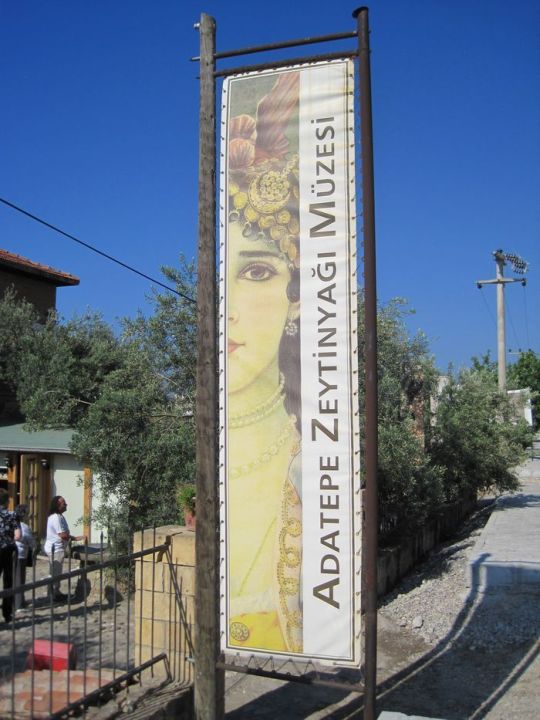
An Unexpected Situation
There were moments when I was shocked, but I tried to act as dignified as possible. However, inside, I wanted to laugh uncontrollably. Around me was a circle of people with dark faces, all wearing red fezzes. The band played loudly, playing “God Save the King.” The Governor stood in a special area, surrounded by red ropes, on a blue carpet. In the center were two fancy red and gold chairs that looked like stage props.
A Royal Reception
We exchanged greetings in a formal way, bowing to each other repeatedly. When “God Save the King” finished, I was politely invited to sit in the crimson and gold chair next to the Governor. At that moment, I felt like I was the official representative of Great Britain. In fact, I almost felt like I was the Viceroy or a representative of the King himself. But at the same time, I felt like an imposter. I wanted to stand up, explain that I was just a curious traveler! Later, my dragoman told me that the audience thought I was a member of King Edward’s personal staff! That was quite embarrassing. Still, I kept a serious face. If I ever meet His Majesty, I’ll tell him that the most uncomfortable half hour of my life was when I unknowingly became the representative of Great Britain at a circus in Kirk Kilise Dragalevtsi Monastery.
The Circus Performance
There were cigarettes to smoke and coffee to drink. An older woman in blue tights jumped through hoops. A trapeze artist performed, and a clown entertained the crowd. The audience, mostly men wearing fezzes and a few dark-eyed Greek women, seemed to watch in a very calm way, almost as if they weren’t fully enjoying themselves.
The Governor’s Busy Work
Throughout the performance, the Governor was still working. He frowned and looked serious. A soldier quickly brought him a telegram form, and he wrote a message. Officers stood behind him, and with just a small signal, one of them would step forward to attend to him. The Governor’s secretary, a small, tired-looking man, came in, bowed, and handed him more telegrams. By the end of the evening, I must have seen at least a dozen telegrams delivered.
The People’s Respect
The people of Kirk Kilise watched the Governor closely. They seemed impressed as he sat in his fancy chair, deep in thought, tapping his pencil on his knee. They appeared in awe of him.
0 notes
Photo
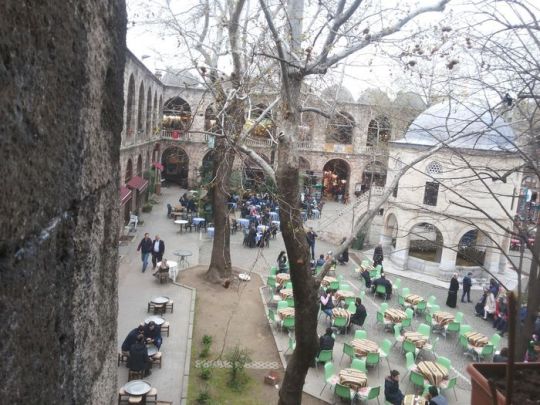
Sofia a City in the Making
Sofia, the capital of Bulgaria, is working hard to become a modern and beautiful city. It is located on a flat plain, with stunning mountain ranges in the background, creating a picturesque setting. The city has quickly built impressive public buildings. The Royal Palace, where Prince Ferdinand sometimes stays, is grand and elegant. The National Assembly building is large and well-built, with an ornate interior that shows the city’s growing importance. Sofia also has modern technical schools, which are well-equipped and offer up-to-date education for the people. The military barracks are of high quality, as good as those in England, and the Military Club is as stylish as any club in London’s Pall Mall.
In addition, Sofia has affordable, clean, and comfortable hotels for visitors, making it an easy place to stay. The city also offers a good theatre for entertainment. For relaxation, there are lovely gardens where people can sit and enjoy music played by a band on cool summer evenings while sipping drinks. The people of Sofia are determined to create a capital city that reflects the hardworking and energetic spirit of Bulgaria Adventure Bulgaria Tour.
Bulgaria’s Struggle for Independence
Sofia’s development is even more impressive when considering the country’s history. For centuries, Bulgaria was under Turkish rule, and this occupation caused great harm to the country. In 1878, however, the Turkish rulers were forced out by Russian forces, and Bulgaria gained its independence. This was a turning point in Bulgarian history, as the people finally had the chance to build their nation from the ground up.
Once the Turks left, the Bulgarians worked quickly to remove the signs of Turkish rule. One of their first actions was to clear away the evidence of the Turkish occupation. The Turkish population also began to leave, and their cultural influences slowly faded. Many of the mosques that had been built by the Turks were abandoned. These mosques, which had once served as places of worship, were repurposed for other uses. Some were turned into prisons, others into markets, and some even became public baths.
The Decline of Turkish Influence
Today, only one mosque in Sofia remains in use. The city has worked hard to erase the traces of the Turkish past, focusing on building a new, modern identity for itself. This effort is evident in the city’s architecture, culture, and the everyday lives of its people.
In just a short time since gaining independence, Sofia has transformed from a city under foreign rule to a thriving, energetic capital. As Bulgaria continues to grow, Sofia is working to ensure that its future is as bright and promising as its people are determined to make it.
0 notes
Photo
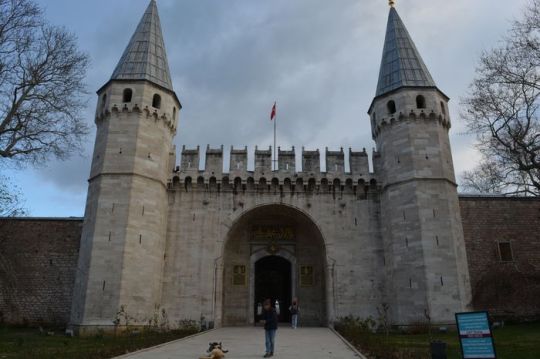
The Punitive Labour Camps in Bulgaria
Introduction to Labour Reformation Communes
On December 20, 1944, the Bulgarian Council of Ministers established the Labour Reformation Communes (LRC), following the model of the Soviet GULAG system. This decision was made despite contradicting Article 73 of the Bulgarian Constitution, which aimed to protect individual rights. The new ordinance allowed the government to create punitive labour camps for those considered political opponents. According to Article 1 of this ordinance, “Individuals dangerous to the country’s state order and security can be forcefully sent to specialized labour camps under the close supervision of the People’s Militia,” which was the name for the civilian police forces at the time.
Establishment of the Labour Camp System
The setup of the labour camp system in Bulgaria began even before the official ordinance was passed. Following a report by the Minister of the Interior, Anton Yugov, the Politburo of the Bulgarian Communist Party instructed the State Security Departments to create lists of people deemed untrustworthy. These individuals were to be removed from cities and border regions for the supposed safety of the country.
By 1948, the process of resettling and imprisoning these people was being carried out by the Militia, State Security Services, and local authorities. That same year, a specialized section called “Internment and Prisons” was formed within Department Four of the State Security. This marked the official beginning of a systematic approach to imprisoning political dissidents Bulgaria Private Tours Kazanlak.
Conditions in the Camps
Thousands of Bulgarian citizens were imprisoned in these labour camps, which were effectively concentration camps. The conditions in these camps were horrific. Inmates were forced to work under grueling conditions and faced severe mental and physical abuse. Many endured beatings, torture, and even murder. They also suffered from extreme hunger, with little to no access to medical care.
The impact of these conditions was devastating. Many prisoners died from the abuse and neglect, while others were left with lifelong disabilities. Death certificates often listed false causes of death to conceal the reality of the situation. In a cruel twist, the bodies of deceased inmates were not returned to their families for burial. Instead, they were secretly disposed of, buried in unmarked graves to erase any trace of their existence.
The establishment of the Labour Reformation Communes in Bulgaria marked a dark chapter in the country’s history. It was a blatant violation of human rights and reflected the repressive nature of the communist regime. The punitive labour camps served not only to silence political opponents but also to instill fear among the population. The legacy of these camps continues to haunt Bulgaria, reminding us of the importance of protecting human rights and freedoms for all.
0 notes
Photo
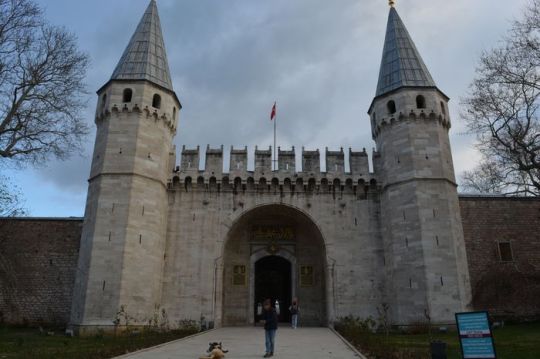
The Punitive Labour Camps in Bulgaria
Introduction to Labour Reformation Communes
On December 20, 1944, the Bulgarian Council of Ministers established the Labour Reformation Communes (LRC), following the model of the Soviet GULAG system. This decision was made despite contradicting Article 73 of the Bulgarian Constitution, which aimed to protect individual rights. The new ordinance allowed the government to create punitive labour camps for those considered political opponents. According to Article 1 of this ordinance, “Individuals dangerous to the country’s state order and security can be forcefully sent to specialized labour camps under the close supervision of the People’s Militia,” which was the name for the civilian police forces at the time.
Establishment of the Labour Camp System
The setup of the labour camp system in Bulgaria began even before the official ordinance was passed. Following a report by the Minister of the Interior, Anton Yugov, the Politburo of the Bulgarian Communist Party instructed the State Security Departments to create lists of people deemed untrustworthy. These individuals were to be removed from cities and border regions for the supposed safety of the country.
By 1948, the process of resettling and imprisoning these people was being carried out by the Militia, State Security Services, and local authorities. That same year, a specialized section called “Internment and Prisons” was formed within Department Four of the State Security. This marked the official beginning of a systematic approach to imprisoning political dissidents Bulgaria Private Tours Kazanlak.
Conditions in the Camps
Thousands of Bulgarian citizens were imprisoned in these labour camps, which were effectively concentration camps. The conditions in these camps were horrific. Inmates were forced to work under grueling conditions and faced severe mental and physical abuse. Many endured beatings, torture, and even murder. They also suffered from extreme hunger, with little to no access to medical care.
The impact of these conditions was devastating. Many prisoners died from the abuse and neglect, while others were left with lifelong disabilities. Death certificates often listed false causes of death to conceal the reality of the situation. In a cruel twist, the bodies of deceased inmates were not returned to their families for burial. Instead, they were secretly disposed of, buried in unmarked graves to erase any trace of their existence.
The establishment of the Labour Reformation Communes in Bulgaria marked a dark chapter in the country’s history. It was a blatant violation of human rights and reflected the repressive nature of the communist regime. The punitive labour camps served not only to silence political opponents but also to instill fear among the population. The legacy of these camps continues to haunt Bulgaria, reminding us of the importance of protecting human rights and freedoms for all.
0 notes
Photo
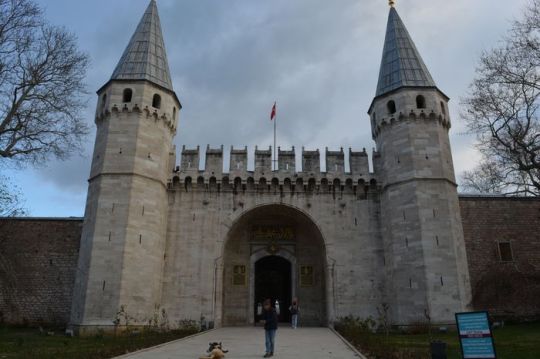
The Punitive Labour Camps in Bulgaria
Introduction to Labour Reformation Communes
On December 20, 1944, the Bulgarian Council of Ministers established the Labour Reformation Communes (LRC), following the model of the Soviet GULAG system. This decision was made despite contradicting Article 73 of the Bulgarian Constitution, which aimed to protect individual rights. The new ordinance allowed the government to create punitive labour camps for those considered political opponents. According to Article 1 of this ordinance, “Individuals dangerous to the country’s state order and security can be forcefully sent to specialized labour camps under the close supervision of the People’s Militia,” which was the name for the civilian police forces at the time.
Establishment of the Labour Camp System
The setup of the labour camp system in Bulgaria began even before the official ordinance was passed. Following a report by the Minister of the Interior, Anton Yugov, the Politburo of the Bulgarian Communist Party instructed the State Security Departments to create lists of people deemed untrustworthy. These individuals were to be removed from cities and border regions for the supposed safety of the country.
By 1948, the process of resettling and imprisoning these people was being carried out by the Militia, State Security Services, and local authorities. That same year, a specialized section called “Internment and Prisons” was formed within Department Four of the State Security. This marked the official beginning of a systematic approach to imprisoning political dissidents Bulgaria Private Tours Kazanlak.
Conditions in the Camps
Thousands of Bulgarian citizens were imprisoned in these labour camps, which were effectively concentration camps. The conditions in these camps were horrific. Inmates were forced to work under grueling conditions and faced severe mental and physical abuse. Many endured beatings, torture, and even murder. They also suffered from extreme hunger, with little to no access to medical care.
The impact of these conditions was devastating. Many prisoners died from the abuse and neglect, while others were left with lifelong disabilities. Death certificates often listed false causes of death to conceal the reality of the situation. In a cruel twist, the bodies of deceased inmates were not returned to their families for burial. Instead, they were secretly disposed of, buried in unmarked graves to erase any trace of their existence.
The establishment of the Labour Reformation Communes in Bulgaria marked a dark chapter in the country’s history. It was a blatant violation of human rights and reflected the repressive nature of the communist regime. The punitive labour camps served not only to silence political opponents but also to instill fear among the population. The legacy of these camps continues to haunt Bulgaria, reminding us of the importance of protecting human rights and freedoms for all.
0 notes
Photo
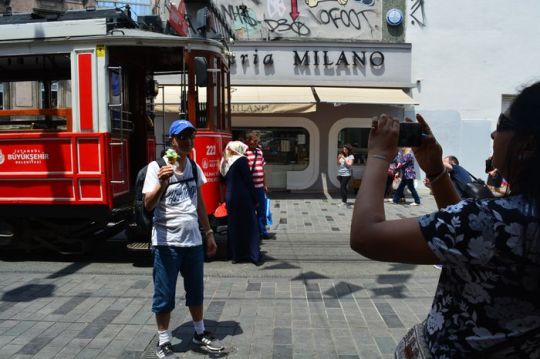
Celebrating the Stand Against Totalitarianism
Dear Friends,
I want to sincerely congratulate you on successfully making this exhibition happen. By organizing this event, you have taken a strong stand on the critical issue of totalitarianism and the attitude we should all adopt towards it. I want to assure you that I fully support the ideas behind this initiative and the important message it conveys.
A Clear Stand Against Totalitarianism
This exhibition makes a clear and powerful statement: totalitarianism can never be rehabilitated or justified. It delivers a strong message that no one should ever have the power to suppress or manipulate the truth for their own purposes. It highlights the importance of recognizing and honoring the resistance the Bulgarian people showed against the imposition of a totalitarian regime. The exhibition also stresses the need to bring to light the violation of citizens’ rights, the crimes, and the atrocities committed by the authoritarian state. These dark chapters in history must not be ignored, dismissed, or forgotten. Above all, the victims of such a regime must always be remembered.
Facing the Past with Courage
I firmly believe that a nation must have the courage to confront its past. Only by understanding and acknowledging the truth about our history can we become a strong and united people. It is essential to show respect for the efforts made by previous generations to endure and overcome the challenges of difficult times Guided Tour Istanbul. By facing our past honestly, we honor those who suffered and resisted, ensuring that such events never happen again.
A Call to Remember
In conclusion, this exhibition serves as a crucial reminder of the dangers of totalitarianism and the importance of preserving the truth. It calls on us to remember the past, respect the struggles of those who came before us, and remain vigilant in protecting the rights and freedoms that we hold dear today. Let us continue to stand together, united in our commitment to truth, justice, and the enduring memory of those who fought against oppression.
0 notes
Photo
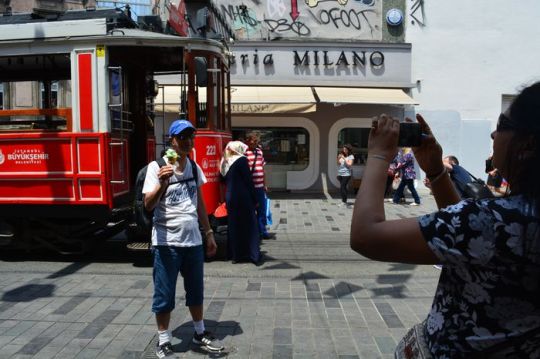
Celebrating the Stand Against Totalitarianism
Dear Friends,
I want to sincerely congratulate you on successfully making this exhibition happen. By organizing this event, you have taken a strong stand on the critical issue of totalitarianism and the attitude we should all adopt towards it. I want to assure you that I fully support the ideas behind this initiative and the important message it conveys.
A Clear Stand Against Totalitarianism
This exhibition makes a clear and powerful statement: totalitarianism can never be rehabilitated or justified. It delivers a strong message that no one should ever have the power to suppress or manipulate the truth for their own purposes. It highlights the importance of recognizing and honoring the resistance the Bulgarian people showed against the imposition of a totalitarian regime. The exhibition also stresses the need to bring to light the violation of citizens’ rights, the crimes, and the atrocities committed by the authoritarian state. These dark chapters in history must not be ignored, dismissed, or forgotten. Above all, the victims of such a regime must always be remembered.
Facing the Past with Courage
I firmly believe that a nation must have the courage to confront its past. Only by understanding and acknowledging the truth about our history can we become a strong and united people. It is essential to show respect for the efforts made by previous generations to endure and overcome the challenges of difficult times Guided Tour Istanbul. By facing our past honestly, we honor those who suffered and resisted, ensuring that such events never happen again.
A Call to Remember
In conclusion, this exhibition serves as a crucial reminder of the dangers of totalitarianism and the importance of preserving the truth. It calls on us to remember the past, respect the struggles of those who came before us, and remain vigilant in protecting the rights and freedoms that we hold dear today. Let us continue to stand together, united in our commitment to truth, justice, and the enduring memory of those who fought against oppression.
0 notes
Photo
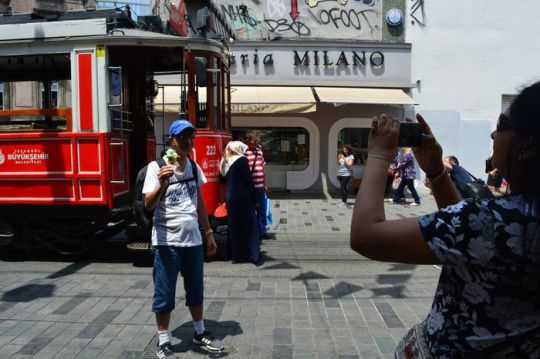
Celebrating the Stand Against Totalitarianism
Dear Friends,
I want to sincerely congratulate you on successfully making this exhibition happen. By organizing this event, you have taken a strong stand on the critical issue of totalitarianism and the attitude we should all adopt towards it. I want to assure you that I fully support the ideas behind this initiative and the important message it conveys.
A Clear Stand Against Totalitarianism
This exhibition makes a clear and powerful statement: totalitarianism can never be rehabilitated or justified. It delivers a strong message that no one should ever have the power to suppress or manipulate the truth for their own purposes. It highlights the importance of recognizing and honoring the resistance the Bulgarian people showed against the imposition of a totalitarian regime. The exhibition also stresses the need to bring to light the violation of citizens’ rights, the crimes, and the atrocities committed by the authoritarian state. These dark chapters in history must not be ignored, dismissed, or forgotten. Above all, the victims of such a regime must always be remembered.
Facing the Past with Courage
I firmly believe that a nation must have the courage to confront its past. Only by understanding and acknowledging the truth about our history can we become a strong and united people. It is essential to show respect for the efforts made by previous generations to endure and overcome the challenges of difficult times Guided Tour Istanbul. By facing our past honestly, we honor those who suffered and resisted, ensuring that such events never happen again.
A Call to Remember
In conclusion, this exhibition serves as a crucial reminder of the dangers of totalitarianism and the importance of preserving the truth. It calls on us to remember the past, respect the struggles of those who came before us, and remain vigilant in protecting the rights and freedoms that we hold dear today. Let us continue to stand together, united in our commitment to truth, justice, and the enduring memory of those who fought against oppression.
0 notes
Photo
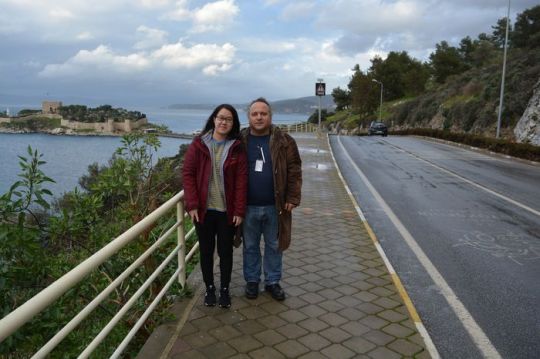
The Complex Conflict in the Balkans
Christian-on-Christian Violence
Many English Christians might not realize that most of the current violence in the Balkans involves Christians fighting other Christians. Various Christian “bands” roam the region, terrorizing villages and forcing them to switch from the Greek Church to the Bulgarian Church or vice versa, often using brutal force. Turkish soldiers occasionally pursue these bands and swiftly deal with them when caught, resulting in more killings.
Deep-Rooted Hatreds
The situation in the Balkans has changed over time. While Christians still harbor hatred towards the Turks, they now hate each other even more. During a visit to a village near Koritza, close to the border of Macedonia and Albania, I asked an innkeeper about his allegiance. He replied, “I find it best to be a Greek,” because a Greek band was active in the nearby hills. This highlights the fear and pragmatic decisions villagers make based on which band is currently in power.
The Real Problem
The real issue for those who care about the Balkan people is not just addressing Turkish incompetence but finding a way to stop the civil war raging between rival Christian churches. The atrocities committed by these church factions against each other are as terrible and inhuman as any perpetrated by the Turks. Meanwhile, the Turks watch and laugh, seeing no need to kill Christians when they are so intent on killing each other Tours Bulgaria.
A Confused Kettle of Fish
The Balkans is a confusing and tangled situation. The average person knows it’s too complex to fully understand and often wonders why the Great Powers don’t just agree to remove the Turks from Europe. However, the Powers cannot agree on this because the real question is: Who will control the Balkans once the Turks are gone?
Interests of the Great Powers
Russia and Austria have their own interests in the region. Russia aims for Constantinople, and Austria covets Salonika. Russia liberated Bulgaria from the Turks, intending to use Bulgaria as a stepping-stone to the Bosphorus. Austria has used Serbia to prepare a route to an Austrian port on the Aegean Sea. Both Russia and Austria were surprised and disappointed when Bulgaria and Serbia, instead of being grateful and compliant, started to assert themselves and dream of expanding their territories without interference from their northern neighbors.
Balkan Ambitions
At the same time, the Greeks began to remember their historical claims to large parts of the Balkan region. Romania, situated on the other side of the Danube, also shocked everyone with its bold claim that the Balkans were really Romanian territory. Each nation in the Balkans began to assert its ambitions, further complicating the situation.
The Balkans remain a complex and volatile region, with deep-rooted hatreds and conflicting ambitions among various Christian factions and neighboring powers. The challenge is not just to remove Turkish rule but to manage the intense rivalries and civil strife among the Balkan peoples themselves. Only by addressing these internal conflicts can there be hope for lasting peace and stability in the region.
0 notes
Photo
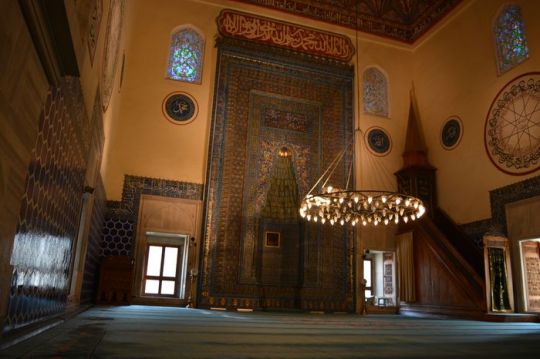
The Enduring Influence of Roses From Treats to Therapies
Rose Blossoms in Daily Life
In the Kazanlak Valley, roses play a significant role in daily life. Celebrated rose preserves are not only offered to esteemed guests but are also valued for their digestive properties. Visitors can indulge in treats like gyulova rakiya, a delightful brandy infused with the scent of roses, or enjoy rose liqueur for a sweet, fragrant experience.
Aromatic Delights Beyond Borders
The scent of Bulgarian rose oil is a coveted ingredient in many internationally renowned perfumes, creams, and lotions. Featuring Kazanlak rose attar, rose water, concrete, and absolute, these products are cherished for their distinct fragrance. In aromatherapy and natural medicine, rose attar, rose water, and infusions are prized for their ability to promote relaxation and harmony for both body and soul Private Turkey Tours.
Exploring a World of Fragrances
While the rose holds a special place, other fragrances are equally beloved. Lavender, peppermint, anise, basil, wild geranium, dill, marigold, and hyssop are among the favorites. Oils, concretes, and extracts derived from these plants serve as essential ingredients in various products across the perfume, pharmaceutical, and cosmetic industries worldwide.
Embracing Lavender’s Charm
For centuries, lavender’s lovely violet blossoms and soothing aroma have symbolized freshness, comfort, and cleanliness in homes. Today, Kazanlak’s variety of lavender is gaining popularity worldwide, cherished by an increasing number of enthusiasts.
Tracing the History of Roses
The relationship between humanity and roses dates back to ancient times. Originating from Persia, rose blossoms were utilized in ancient Egypt, China, Greece, and Rome for scents, wines, infusions, and medicine. They held significance in sacred rituals and were even mentioned in the works of Homer, who recounted the goddess Hera using roses to heal wounds.
A Timeless Connection
As we delve into the earliest origins of human interaction with roses, we uncover a deep-rooted bond that transcends time and borders. From culinary delights to therapeutic treatments, the influence of roses continues to enrich and enchant our lives.
0 notes
Photo
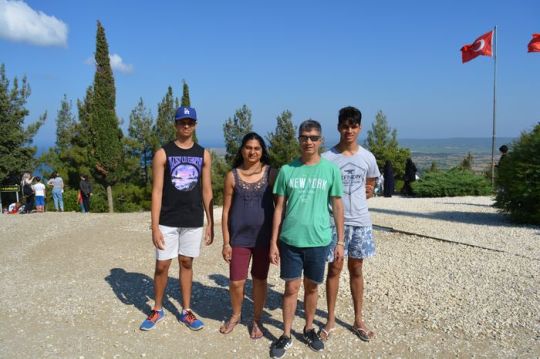
The Reality of Bulgarian Villages
Contrary to my previous assumptions, the burning of Bulgarian villages did not merely entail the destruction of crude mud huts.
Surprising Discoveries
I was astounded to learn that many Bulgarian villages are, in fact, well-constructed towns boasting sturdy stone houses. Within these communities, a considerable number of residents enjoy a level of comfort comparable to that found in English or French villages.
Challenging Stereotypes
Rather than the primitive savages commonly depicted, the Bulgarians are hardworking, industrious, honest, and peaceful people. Their villages reflect a level of civilization that defies outdated stereotypes.
The Truth about the Insurrection
While insurrection was attempted in several villages, Batak remained peaceful, with no recorded instances of violence against Turks.
Surrender without Resistance
When Achmet-Agha, the leader of the massacre, demanded the surrender of arms, the villagers initially resisted. However, they offered to surrender their weapons to the regular troops or the local authority in Tatar Bazardjik. Despite their willingness to comply with official channels, Achmet-Agha insisted on receiving the arms directly Tour Packages Balkan.
Surrender of Arms
After prolonged negotiations, the villagers reluctantly handed over their arms. It’s crucial to note that these were not weapons amassed for insurrection but rather commonplace possessions carried openly by both Christians and Muslims.
The events following the surrender of arms paint a grim picture, one that sheds light on the atrocities witnessed by eyewitnesses.
0 notes
Photo
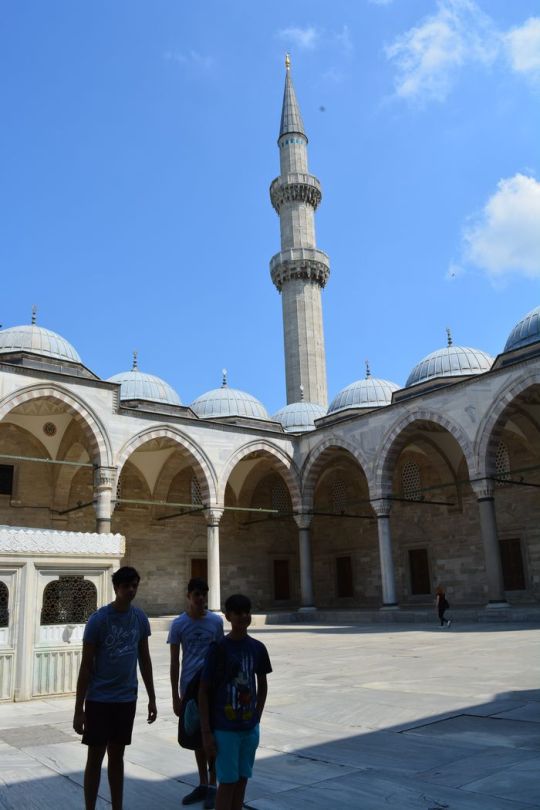
The Citadel of Power
The Citadel’s Significance
Tsarevets stood as the primary fortress of the Second Bulgarian Kingdom, perched upon cliffs overlooking the winding Yantra River. Its imposing stone walls guarded the heart of Bulgarian power, with access primarily from the west via a fortified rocky isthmus boasting three successive gates. Notably, the southeast portion of the fortress housed the Frenkhisarska Gate, linking Tsarevets to the district of the Frenky, home to foreign traders.
Situated along the south side of the west wall lies the Small Gate, or Asenova Gate, connecting Tsarevets to the “new town” and the neighboring hill Trapezitca. A central street, following a horizontal plane, interconnected all main gates and encircled the entire fortress, with smaller secondary streets branching off. District parish churches dotted the landscape, offering convenient access to the Tsar’s Palace and the Patriarchate. In front of the Palace, a Square served as a venue for receiving foreign delegates and hosting ceremonial events Private Tours Istanbul.
The Majesty of the Tzar’s Palace
Perched atop Tsarevets Hill, the Tzar’s Palace occupies a flat terrace encircled by its own fortress wall, with the primary entrance facing west towards the Square. Spanning an area of 4872 square meters, the Palace comprises throne halls in the western section and living quarters along the eastern side, including the Palace church. The southern section housed agricultural areas and food court buildings, delineated by a stone wall, all interconnected by spacious courtyards.
Three Construction Phases
Research reveals three distinct periods in the construction of the Palace. The initial phase likely saw the residence of a Byzantine superintendent. The second phase, under Tzar Ivan Asen The Second, witnessed significant reconstruction, elevating the structure to a royal palace. Finally, in the mid-14th century, during the reign of Tzar Ivan Alexander, further renovations reshaped the Palace to reflect the evolving needs of Bulgarian royalty.
Reconstruction Insights
Architectural reconstructions, spearheaded by B. Kuzupov, offer invaluable glimpses into the grandeur and layout of the Tzar’s Palace, shedding light on its historical significance and architectural evolution. From the central courtyard to the majestic throne halls, each aspect of the Palace speaks volumes about Bulgaria’s rich past and royal heritage.
0 notes
Photo
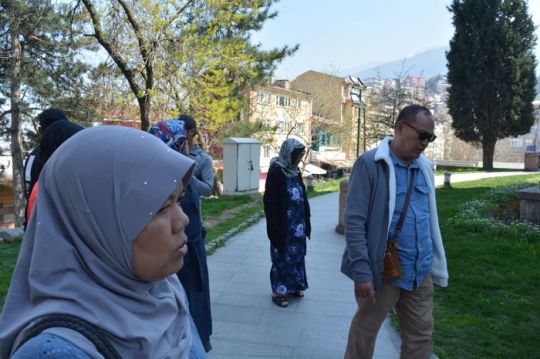
Geography and Natural Resources of Bulgaria
Landscapes and Waterways
Bulgaria is a country with a lot of mountains, plains, and rivers. On one side of the rectangular-shaped Bulgaria, there is a coast along the Black Sea. The varied landscapes and the sea have made the country good for farming, raising animals, and forestry. Important crops include cereals, grapes, potatoes, silkworms, roses, and tobacco.
Geographical Information
Area: 42,785 square miles Latitude and Longitude: 44°12’50” to 41°14’12” N, 22°21’35” to 23°36’37’’ E Population (1956 census): 7,613,709 Population (1962 preliminary data): 8,046,000 Population Density (1956): 179 people per square mile Major Cities
The largest cities in Bulgaria are Sofia City Tour Istanbul, Plovdiv, Varna, Russe, and Burgas, according to the 1956 census.
Population Changes
In 1946, 74% of the population lived in rural areas, and 26% in urban areas. By 1956, this had shifted to 65% in rural areas and 35% in urban areas.
Ethnic Diversity
1984: Bulgarians (Slavs): 86.8% Turks: 10.2% Gypsies: 1.3% Jews: 0.5% Others: 1.2% 1952: Bulgarians (Slavs): 91% Turks: 6% Gypsies: 2% Jews: 0.04% Others: 0.96% Languages and Minorities
The main language is Bulgarian (Slavonic). Turkish is spoken by the Turkish minority, and Old Spanish is spoken by the Jewish minority, among other languages. The numbers of the Turkish and Jewish minority groups have decreased under the Communist regime due to emigration.
Religion
The exact percentage of religious followers is not available due to the Communist regime’s stance against religion. Despite discouraging religious practices, the regime uses the church for propaganda. The majority of the population is considered Greek Orthodox, with Islam as the second-largest religion. There are also small percentages of Catholics, Protestants, Jews, and others.
Mining and Natural Resources
Coal (1962): 20,800,000 tons Iron (1962): 628,000 tons Copper (1962): 93,000 tons Lead and Zinc (1956): 1,500,000 tons Oil (1961): 207,000 tons Bulgaria has rich mineral resources, including coal, iron, copper, lead, zinc, and oil. Varna, near the Black Sea, and the Pleven district are significant locations for mineral deposits, particularly crude oil discovered in 1962. The country also boasts around 400 mineral springs, with famous ones like the baths of Hisara, Merichleri, and Separevo.
0 notes